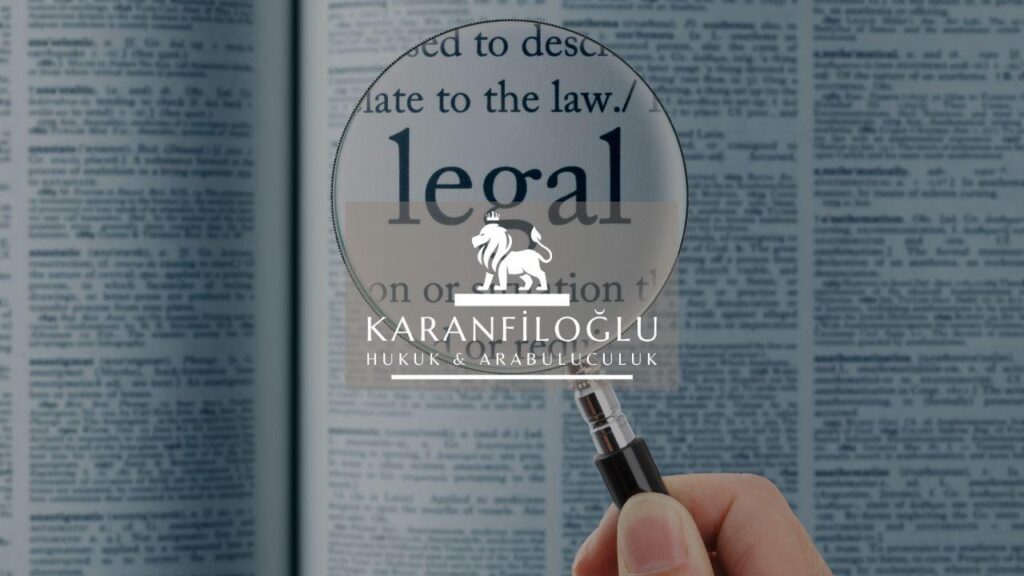In expropriation cases, the rights of citizens often hang in the balance. Property rights are crucial, yet they sometimes clash with government plans. During these times, understanding citizen rights becomes vital. Why does this matter? It affects your land and belongings. Imagine losing your home with little to no notice or fair compensation. That’s where legal protections come into play. They serve as a safeguard, ensuring that your voice is heard. But the journey isn’t always smooth. Often, it feels like navigating a maze with hidden traps. Knowing your rights isn’t just helpful — it’s essential. Fair compensation should be more than just a promise. It’s a right. Engaging in these cases can feel daunting. But well-informed citizens can stand their ground. They hold the cards to protect what’s theirs. So, let’s dive into the intricate world of citizen rights in expropriation cases, where knowledge is indeed power.
Understanding the Legal Framework of Expropriation
Understanding the legal framework governing expropriation cases is like fitting the pieces of a complex puzzle. At its core, expropriation involves the government legally taking private property, which directly impacts property rights. But this isn’t just a simple transaction; it’s a matter where legal protections are paramount. The law is designed to balance these actions by ensuring fair compensation. Rules and regulations vary from place to place, complicating matters further. Imagine trying to grasp shifting sands — that’s what citizens often feel faced with in this scenario. Yet, knowing your rights can transform the daunting into the manageable. Dive into legal texts or consult professionals to make sense of the dense legalese. It’s not just about acquiring knowledge; it’s about arming yourself with information, ensuring that your citizen rights remain intact throughout the process.
Grasping the legal framework of expropriation involves understanding a web of legislative nuances that protect citizen rights. Often, these laws are the guardians of fairness, ensuring the process remains just and transparent. In expropriation cases, it’s vital to recognize the intersection of property rights and government authority. Legal protections act as a shield, demanding that fair compensation isn’t a mere afterthought but a mandated requirement. Picture this: a delicate dance between citizens and state interests, with laws dictating each step. Here, details matter — timelines, valuation methods, and appeal processes can alter the outcome significantly. Familiarity with these aspects is not optional; it’s a necessity for anyone engaging with expropriation. Observe the red flags, understand your leverage, and know that these regulations are not obstacles but essential tools designed for your protection. Remember, knowledge is not just power — it’s your greatest ally in preserving your rights.
In the labyrinth of expropriation cases, understanding property rights and legal protections is crucial for securing fair compensation. The laws governing these cases are not monolithic; they shift like tides across different jurisdictions. As a citizen, you need to navigate this complex terrain with a clear roadmap. Imagine the process as a tightrope walk, where each step—be it filing a claim or presenting evidence—can tip the balance in your favor. Knowledge about these intricate legal avenues provides armor against unforeseen challenges. Grasp timelines, comprehend valuation metrics, and pay close attention to appeal routes. Each is a crucial piece in your arsenal, turning the tide of expropriation in favor of your citizen rights. Ultimately, armed with diligence and awareness, you empower yourself to tackle these legal complexities head-on, safeguarding what’s rightfully yours amidst the storm.
Protecting Citizens’ Interests: Challenges and Solutions
Protecting citizen rights in expropriation cases is like shielding your castle from a storm. Challenges often arise when property rights collide with state interests. It’s not uncommon for citizens to feel overwhelmed. The process is riddled with legal complexities and potential pitfalls. Fair compensation can sometimes seem like chasing a shadow. Yet, legal protections are the knight in shining armor for homeowners. They provide the framework for justice and fair play. Ignorance is not bliss here. Staying informed is your best ally, ensuring you’re equipped with a strong defense. So, what’s the solution? Grit and knowledge. By understanding your rights, you’re not just a passive participant. Instead, you actively engage, steering the outcome. Embrace available resources and demand accountability. This way, citizens can tip the scales towards fair compensation and justice. Remember, a well-informed citizen is a formidable noisemaker in expropriation cases.
Expropriation cases often stir up a tempest of challenges for citizens aiming to protect their interests. Maneuvering through the legal maze can feel like an uphill battle. Yet, understanding property rights and legal protections is key to firmly standing your ground. The echo for fair compensation shouldn’t fade into whispers. Challenges are aplenty—from undervaluation to bureaucratic hurdles. So, how do citizens face these giants? Solutions abound when knowledge takes the front seat. Equipped with awareness, citizens can effectively challenge unfair practices. Seeking advice from experts ensures you’re not alone in this journey. Citizen rights are not just words on paper—they are powerful tools. Vocal opposition against injustice aids in leveling the playing field. Activism and unity can turn the tide, making every obstacle an opportunity. Remember, there’s strength in numbers, and persistence is pivotal in achieving justice in expropriation cases.
In safeguarding citizens’ interests amid expropriation cases, vigilance is your closest ally. Grappling with property rights can feel like walking a tightrope. The stakes are high, and missteps costly. Yet, the promise of fair compensation is not a mirage. With clear understanding, you can navigate these waters. Never underestimate the power of collective action. Legal protections act as your compass, guiding you through turbulent times. So, how do you tackle these challenges head-on? First, arm yourself with knowledge. Research, reach out, and rally with fellow citizens. Fair compensation is attainable when your voice resounds together with others. Legal expertise becomes your anchor, helping you sail smoothly through obstacles. Every challenge presents an opportunity to affirm citizen rights and seek justice. Remember, a united front is formidable in turning aspirations into reality. Persist, press on, and let justice in expropriation cases be your ultimate pursuit.
Case Studies: Successful Advocacy in Expropriation Disputes
In many expropriation cases, citizen rights shine through stories of successful advocacy. Consider the small community in Riverdale, where property owners faced abrupt government plans to seize their homes. With their property rights under threat, residents banded together to seek justice. Legal protections offered them a fighting chance. The community’s determined stance led to a landmark decision ensuring fair compensation. It became a story of empowerment—a David versus Goliath tale where knowledge of citizen rights turned the tide. Through informed action and understanding, these citizens transformed their situation. The promise of fair compensation moved from paper to reality, proving that in the complex world of expropriation disputes, unity and persistence can deliver significant victories.
In another striking case, the Johnson family in Lakeview faced intense challenges as property rights were threatened by a new infrastructure project. Fear and uncertain futures loomed over them, but they didn’t back down. They delved into their citizen rights, learning about legal protections available to them. With determination, they gathered community support and enlisted expert help to advocate for fair compensation. Their efforts caught the attention of media outlets, spotlighting their plight. By asserting their rights, they made headway in expropriation cases, demonstrating the power of collective action. The campaign turned into a rallying cry—a testament to how understanding your rights isn’t just empowering, it’s necessary. The Johnsons emerged victorious, securing not only equitable compensation but also strengthening the community’s belief in fighting for what’s right. Their journey exemplifies how citizen rights become a formidable force against overpowering odds.
In yet another testament to citizen rights triumphing in expropriation cases, the residents of Willow Springs faced a looming threat when a developer planned to encroach upon their cherished town park. The potential loss of this community asset sparked a determined response. Residents, valuing their property rights and bound by a common purpose, leveraged legal protections to contest the proposal. Through persistent advocacy, they garnered support from local leaders and environmental groups, bolstering their cause. This collective effort underlined the necessity of fair compensation and respect for public spaces. Their spirited campaign culminated in the preservation of the park, safeguarding it for future generations. This victory echoed as a powerful reminder that, with understanding and unity, citizens can effectively wield their rights to challenge expropriation. The Willow Springs story reinforces the notion that when communities rally together, even formidable obstacles can be overcome, proving once again that knowledge truly is power.
Disclaimer: This article is for general informational purposes only and you are strongly advised to consult a legal professional to evaluate your personal situation. No liability is accepted that may arise from the use of the information in this article.







